
2011-2012 has been another rollercoaster season at Liverpool Football Club. The season has brought a return to winning silverware, trips to Wembley, some impressive football but ultimately the lingering sense of failure.
It wasn’t supposed to be this way and Kenny’s time as temporary manager provided plenty of reasons to be optimistic. Liverpool, as the critics are keen to point out, spent over £100 million over the course of a year (not as a net spend, but real money nonetheless) with the key target being to finish in the top four. Kenny Dalglish, Liverpool’s saviour on so many occasions, seemed destined to usher in a new era, to steer the club away from the misery of Hicks and Gillett’s disastrous regime and into Europe’s top competition. It didn’t pan out that way, and the club finished in a dismal 8th place, shattering all manner of unwanted records.
Again, it is important to look back. There are good reasons to do this, as it allows a greater sense of perspective. Too often, football fans’ reactions these days are twisted by a biased media, social media chest-thumping and a genuine lack of perspective. Ambition is great, but it has to be tempered by some degree of pragmatism.
The fact is, FSG’s net spend has not been close to Liverpool’s rivals and there is still no decision on a stadium. The club is making significantly less matchday revenue than the top 3. This means that, whoever the manager is, he will have relatively little to spend and be saddled by a transfer policy of “buy young and keep the wages low.” This is a nice idea, but when rival teams are signing up the likes of Aguero, Silva and Mata it is possibly a case of “pennywise, pound foolish.”
“Other managers have done better with less money…”
The leadership structure at Liverpool is slightly unorthodox, and Comolli was at the club before Kenny took the reins. This was hardly an ideal set-up, as Kenny is used to more autonomy than that. While most of the signings are yet to bear fruit, no-one knows what goes on behind closed doors, what FSG’s remit is, who is responsible for signing certain players and why no-one was signed in January (out of character for Kenny).
With no big money to spend, few of the top managers would touch Liverpool with a proverbial bargepole. That means that, should FSG fire Kenny, the club is likely to be in a similar position to when Rafa was “released.” It means that a media-friendly manager who has overachieved, such as Martinez or Brendan Rodgers, could be in contention for the job. So, a manager with a proven track record of silverware gets replaced by a manager who has helped his team avoid relegation against the odds. That does not seem like progress. While they have performed very well in their current jobs, the aforementioned managers might find managing a huge club like Liverpool with the associated demands and expectations slightly different than avoiding the drop.
“Worth a punt, though? Their clubs play good football and sign young players on the cheap.”
This current squad, while flawed, has played some very good football and gotten some big results. It may seem like a disaster just now and maybe some of last year’s signings will prove to be flops but, when you look back, there have been plenty of times when players and managers have needed more than one season to gel. If Kenny Dalglish is fired, we will never know whether that would have been the case.
It is natural that Liverpool fans will want quick success, as we have been starved of it for so long and Kenny is a proven winner. Yet look back just two years. The club was in a sorry state, with Rafa about to be fired, Hodgson (flavour of the month at the time) about to take over and the club genuinely fighting for its life. When Kenny took over and FSG deserve credit for signing him up, he did a fantastic job initially under very difficult circumstances. He brought back belief into the players and fans, had the team playing well and, in the end, wasn’t that far away from a top four place. There are two sides to a story, so it would be foolish not to consider other perspectives.
“That’s all well and good, but he’s failed now, hasn’t he?…”
There are reasons to want to fire Kenny Dalglish – fear of falling further behind and doubt about whether he can turn it around now. Stats can be used to support any argument and there won’t be many people arguing that the league campaign was acceptable. Crucially, though, Kenny wouldn’t and hasn’t argued that. However, there are reasons for cheer. Some of the football has been excellent, the team has beaten five of the top six teams and there was the small manner of two cup finals. Granted, that was not his target, yet many clubs would surely swap their 5th, 6th and 7th place finishes for some silverware. After all, top managers are there to win trophies, so that end Kenny has maintained a fine record and helped create more happy memories for the fans.
“Sure, but it’s only the League Cup. Birmingham won that!”
To win any trophy in the modern era is an excellent achievement. He deserves credit for being the only British manager to lead his team to silverware this season. It is significant. However, in his first full season back at the club, Kenny has failed in what was his sole target (a top four finish), the team has wasted countless chances, lost to so-called “lesser teams” and Anfield has been anything but a fortress. In the league, it has been a depressing time from pretty much the first game to the last – missed penalties, wasted chances, failing to close out games and an inability to string a run together.
“Exactly! Fire him. He’s past it.”
Firing managers is not always the answer and, given Liverpool’s current infrastructure, it might even be catastrophic. Kenny certainly didn’t seem “past it” in February after the League Cup final win. He has led the team to wins over City, United, Chelsea and Arsenal, which is interesting since rival fans try to claim he is a “dinosaur”. Certainly, it would no longer be a public relations disaster for FSG to fire Kenny Dalglish, as many newer fans either have short memories or do not care about the past and Kenny’s ability to get it right. That’s not to say that Kenny is blameless for a terrible league season. He wasn’t. However, there were mitigating circumstances – the Suarez ban, Lucas’ injury and genuine bad luck in some games.
“The table doesn’t lie, though.”
Liverpool simply were not good enough in the league for most of the season. This is undoubtedly true. However, we are talking about a genuinely insane season, where Newcastle finished 5th and Chelsea (who’ve spent an absolute fortune) finished 6th having been Champions two years ago. Even Manchester City lost to Sunderland and Swansea so, while Liverpool’s lack of dominance has been frustrating, the league is stronger and more unpredictable than it’s ever been.
“But what about the Suarez affair? That wasn’t too clever, was it?”
Kenny did not cover himself in glory over the Suarez situation. That is not because he is “out of touch”, but because he clearly sensed a stitch-up. He did, in the end, apologise. Tellingly, the lack of leadership around this issue ensured Kenny was left hung out to dry. FSG and Ian Ayre remained generally tight-lipped on the issue, so Kenny and the players were left to manage the issue and the scrutiny. It was, fair to say, not handled in the most sophisticated manner. Kenny’s detractors would have found anything to use against him. If he’d gone against Suarez, he’d have alienated a top player and could have been accused of not being supportive. When he supported him, it was framed as Kenny being disingenuous. Ultimately, though, Suarez will have appreciated his manager’s backing. It takes courage to stand up for what you believe in and Liverpool need a courageous manager who will see through the garbage being used to denigrate the club.
In his autobiography, he admitted to being naturally suspicious of the footballing press and maybe that suspicion gets the better of him at times. However, all this “out of touch” nonsense misses the point. Mourinho is one of the most successful managers in the modern era, yet he is synonymous with ridiculous soundbites, ungracious behavior and selective memory. Most of the top managers create this siege mentality and it is often effective. They’ll back their players, deflect the blame and create an “us against them” mentality.

“Who cares about other managers? Isn’t this just shifting the blame?”
Other managers are worthy of discussion because it allows us to contrast the way the media distort Kenny’s achievements and hold others up as shining examples of professionalism. Whereas other managers might throw their players under the proverbial bus and roll with the inane line of media enquiry, Kenny can come across as quite prickly and defensive at times. It’s not slick and polished, but he clearly doesn’t suffer fools gladly. To fire a manager because he is not friendly with the press is, at best, shortsighted.
“Liverpool is a massive club and a worldwide franchise. Having a manager who is prickly with the press damages the brand.”
Kenny’s attitude with the press is irrelevant. He won’t get the credit his achievements deserve and even some Liverpool fans choose to ignore it. For one thing, winning a title with Blackburn is casually reframed as “anyone could win with all that money.” It’s strange, then, that no-one else in the Premier League era has taken over a team in the equivalent of the Championship, gotten them promoted, and led them to the Premier League title within 4 years. Money or not, that is an astonishing and surely never to be surpassed achievement.
Kenny got little credit for leading the club to its first domestic double in 1986. That was someone else’s team, allegedly, and he was just “lucky.” That’s fair enough and people will cling to their perspectives, but Liverpool had a trophyless season in 1987. He wasn’t fired and was given, wait for it, time – time to put things right, to offload older, underperforming players and to bring in talented reinforcements like Barnes, Beardsley, Houghton and Aldridge leading the club to some of the finest footballing displays ever seen at Anfield and more silverware.
“That’s the past, though. Football has changed.”
The past can be instructive. While the club has rested on past glories for too long, it would be remiss not to acknowledge the way in which the anti-Dalglish narrative has played out. When he left in 1991, his critics said he was a “bottler” and he had an ageing team that was in decline. Patrick Barclay, then writing for The Times, cited signings such as David Speedie and Jimmy Carter as “evidence” that Kenny had lost the plot – much like when Fergie signed Kleberson, Djemba Djemba, Bebe et al. The club was top of the table at the time, having enjoyed its best start to a league campaign in many years, and still in the FA Cup. This is a unique sort of decline.
The problem, if anything, is that Kenny is not a shameless self-promoter. He has never drawn attention to his own success as a player or manager. That has enabled others to undermine him and spin elaborate yarns that are laughable when looking at the most basic of statistics. For example, Graeme Souness has often claimed that the Liverpool team he inherited from Kenny was on the wane, that he “had to” overhaul the squad on a massive scale. He blamed Kenny for his own failures. Kenny left when Liverpool were champions and top of the table. That is, as Rafa might say, the fact.
“The other “fact” is that we are not good enough.”
Football is so transitory – Roberto Mancini went from zero to hero in the last 120 seconds of the season. Destiny hinges on moments of luck and heroism. Kenny has experienced this throughout his career, as a player and as a manager. If anyone deserves time to get it right, it is Kenny Dalglish. When he has been given time in the past, he has won more battles than he’s lost. It may seem overly romantic, but Kenny speaks the same language as the fans. If you can happily dismiss a legend when things are bad (but not beyond repair), what then makes Liverpool unique? It will be another unforgiving “firing club”, searching for the magic bullet. There will be no-one more hurt by Liverpool’s league form and more determined to get it right than Kenny. He came back to the club at a difficult time in its history and was put in a difficult position of having to restore confidence. He has never let the club down and, while things may not have worked exactly the way we wanted them in 2012 and football is more a more ruthless business than ever, surely now is not the time to let Kenny “walk alone.” He needs the fans’ and the owners’ support more than ever. With that and just a bit more luck, he is still the man to turn it around. After all…
Sometimes you have to look back before you begin to look forward…
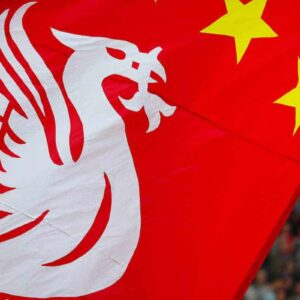
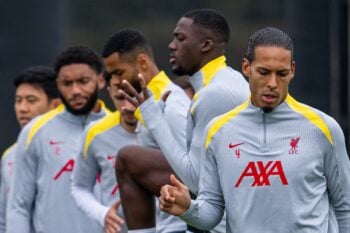
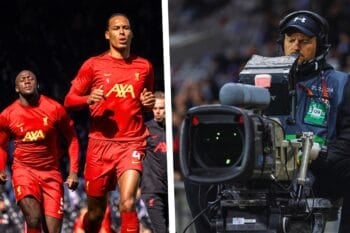

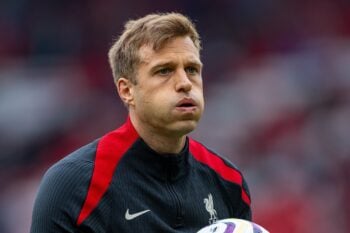
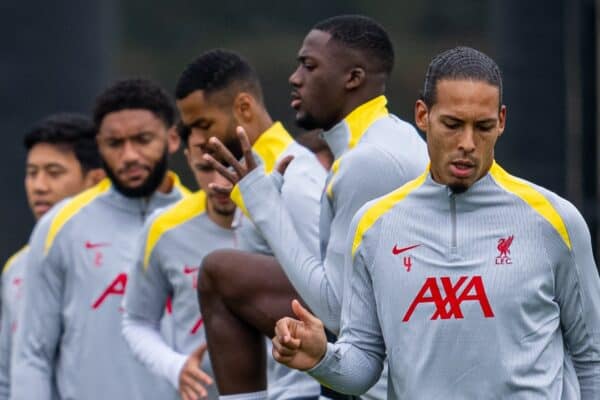
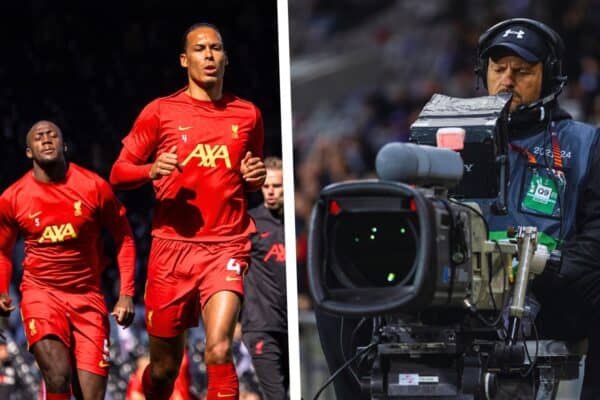
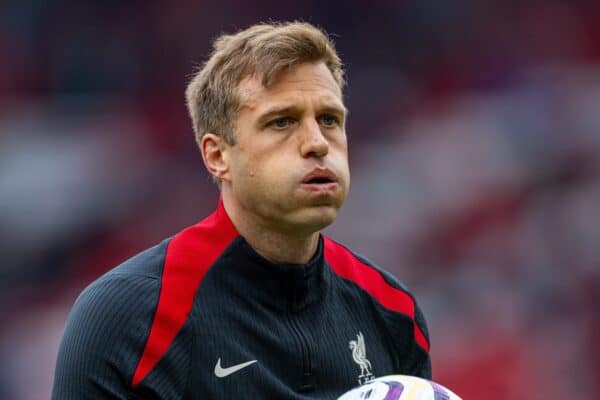


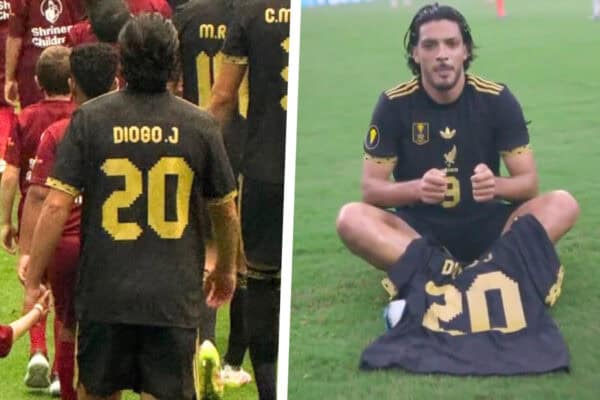
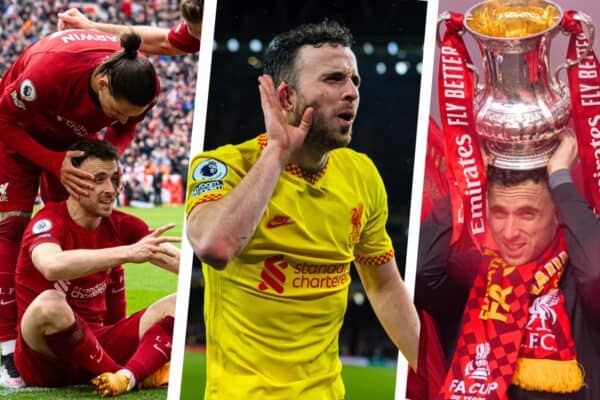




Fan Comments